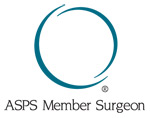Consultation and Preparing for Surgery
During the consultation be prepared to discuss:
- Your concerns and an evaluation of your child's condition
- Options available for cleft lip and/or cleft palate repair
- Likely outcomes of surgery and the potential risks and complications associated with the procedure
- A recommended course of treatment
Be candid about your concerns for your child and your plastic surgeon's ability to meet his or her special needs.
The success of your child's procedure, safety, and overall satisfaction requires that you:
- Honestly share your concerns
- Fully disclose your child's health history, including current medications, vitamins, and herbal supplements
- Commit to precisely following all of your plastic surgeon's instructions
Prior to surgery, your plastic surgeon will discuss with you:
- Pre-surgical considerations, diagnostic testing, and medications
- Day-of-surgery instructions and medications
- Specific information related to the use of anesthesia
- Postoperative care and follow-up
In some cases, your child may be given an intraoral (inside the mouth) device, called an obturator, to wear prior to repair of the cleft lip or cleft palate that may assist in feeding and maintain the arch of the palate prior to repair.
Be sure to ask your plastic surgeon your questions. It's very important to understand all aspects of your child's procedure. It's natural to feel some anxiety, whether excitement for the anticipated outcomes for your child or preoperative stress. Please discuss these feelings with your plastic surgeon.

